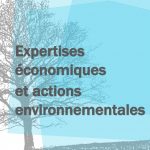The seminar “Economic expertise and environmental actions” welcomes
Kamilla Karhunmaa
University of Helsinki and SPIRAL, University of Liège
et Céline Granjou
LESSEM-INRAE
Carbon offsetting
This session explores the ways in which carbon offsetting mobilizes arguments and expertise from soil science, economics and other fields to produce new entities and recast the way existing objects such as soils tend to be understood.
Kamilla Karhunmaa
From charity to crime to commodity: settling the economic form of carbon offsetting in Finland
While economics seems to be everywhere, particularly in market-based environmental policy instruments, this presentation discusses the support that economics and economists gather from other fields to be convincing. I present the case of Compensate, a seller of carbon offsets in Finland, which raised a public discussion, criminal case, and legal reform on the status of carbon offsetting in Finland. Following Compensate’s trajectory shows how the tangibility, reciprocity and remunerative capacity of carbon offsets is questioned. Further, the case demonstrates how the economic form of carbon offsetting requires significant institutional support to be formalized and even then, results only in a temporary stabilization.
Céline Granjou
The promises of soil carbon sequestration : unpacking the politics of carbon quantification
The Paris Agreement reached at the COP 21 in 2015 signal the new centrality of carbon sinks, including soils, as a key means of enabling climate stability. Holding three times as much carbon as the atmosphere, soil is considered the largest terrestrial reservoir of carbon that we could manage and enhance. How does the rising promotion of soil as carbon sink in climate policies reconfigure the way in which we come to know and manage soils ?
I will first introduce the ANR-funded POSCA project : its team is completing a vast sociological investigation both into soil sciences academia and on-the-ground organizations of soil improvement and management. On the basis of that field-work, we observe a contestable, and contested, quest for measuring and quantifying soil carbon stocks and fluxes, that tends to recast soils as reservoirs of carbon that we could measure, model, map and optimize both at global and local scales. Ways of knowing and managing soils tend to be polarized by a double focus on carbon (i.e. a movement of carbonization) and on measuring (i.e. a quest for quantification). The politics of carbon quantification entail a number of practical and political issues, as accounting for soil carbon takes precedence over securing soils as complex, evolving and vulnerable entities for the future.

Kamilla Karhunmaa is apostdoctoral researcher at the University of Helsinki, and a scientific collaborator with the SPIRAL research center at the University of Liège. Her current research, developed as part of the Climakedo project at the University of Helsinki, focuses on the knowledge policies and practices underpinning voluntary carbon offsets in northern countries, using an approach at the crossroads of science and technology studies (STS) and environmental policy.
Céline Granjou is Director of Research in sociology at the EcoSystèmes et Sociétés en Montagne Laboratory (LESSEM-INRAE) at Grenoble-Alpes University. Her research lies at the crossroads between the sociology of science and technology and the sociology of the environment. She is currently part of the interdisciplinary team in sociology and soil sciences of the POSCA project – The Promises of Soil Carbon Sequestration Knowledge, aiming to studying how the promotion of soil as Carbon sink in climate policies reconfigures the ways in which we know and manage soils, at the level of soil carbon science (agendas, research infrastructures), of its regulation (standardization and standardization of methods for evaluating and measuring soil carbon), and its management (strategies for optimizing carbon stocks and their effects on agricultural and forestry activities and sectors).
Information and registration

Date: Friday, January 19, 2024, 11am-1pm
Venue: Mines Paris-PSL, 60 boulevard Saint Michel, 75006 Paris. Room V115
The seminar is held in English.
The session will also be streamed by videoconference. The link will be sent upon registration just before the seminar.
The seminar is open to all. Please register here to participate in this session.
Contact: Béatrice Cointe, Kewan Mertens or Alexandre Violle
Find out more about the program
Photo sources: Kamilla Karhunmaa,University of Helsinki; Céline Granjou,LESSEM-INRAE, LISIS.

